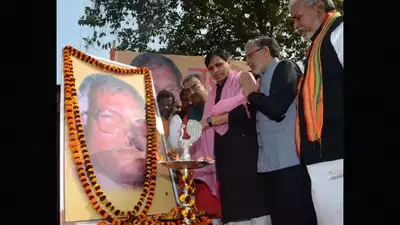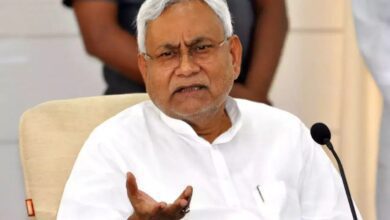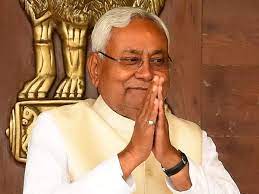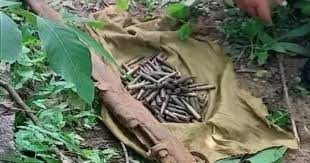Everything you need to know about Karpoori Thakur, a political trailblazer in Bihar
On the occasion of his centennial, Karpoori Thakur, a prominent player in OBC (Other Backward Classes) politics in Bihar and a two-time chief minister, has been posthumously nominated for India’s highest civilian honor, the Bharat Ratna.

The late Thakur, who died in 1988, was unique in that he was the first non-Congress socialist leader to hold the office of chief minister twice: for two years in 1977 and for seven months in December 1970.
Born into the Nai Samaj (barber society) on January 24, 1924, Thakur is well known in Bihar for enacting a total prohibition on alcohol in 1970. His birthplace, a hamlet in the Samastipur district, was later renamed Karpuri Gram in his memory.
These are the key occurrences throughout his life:
1934: Passed the sixth test in standard.
1940: Passed the matriculation test and was accepted at CM College in Darbhanga
Joins the Congress Socialist Party in 1946. In 1947, Ram Manohar Lohia appoints him as state secretary of the Akhil Bharatiya Hind-Kisan Panchayat, which he had founded. From 1948 until 1952, Lohia appoints him as the Socialist Party’s Bihar secretary.
1952 (June–Aug)–Lohia sends him on a foreign trip to attend the International Socialist Youth Conference in Vienna, where he visits Yugoslavia and meets President Marshal Tito 1967–Inner disputes prevented him from becoming Chief Minister of the first non-Congress administration, known as the Samyukt Vidhayak Dal government.
1972: Elected from Tajpur to the Assembly;
1977: Elected from Samastipur to the Lok Sabha; 1980: Elected from Samastipur to the Assembly;
1985: Elected from Sonbarsa to the Assembly, rising to the position of leader of the opposition







